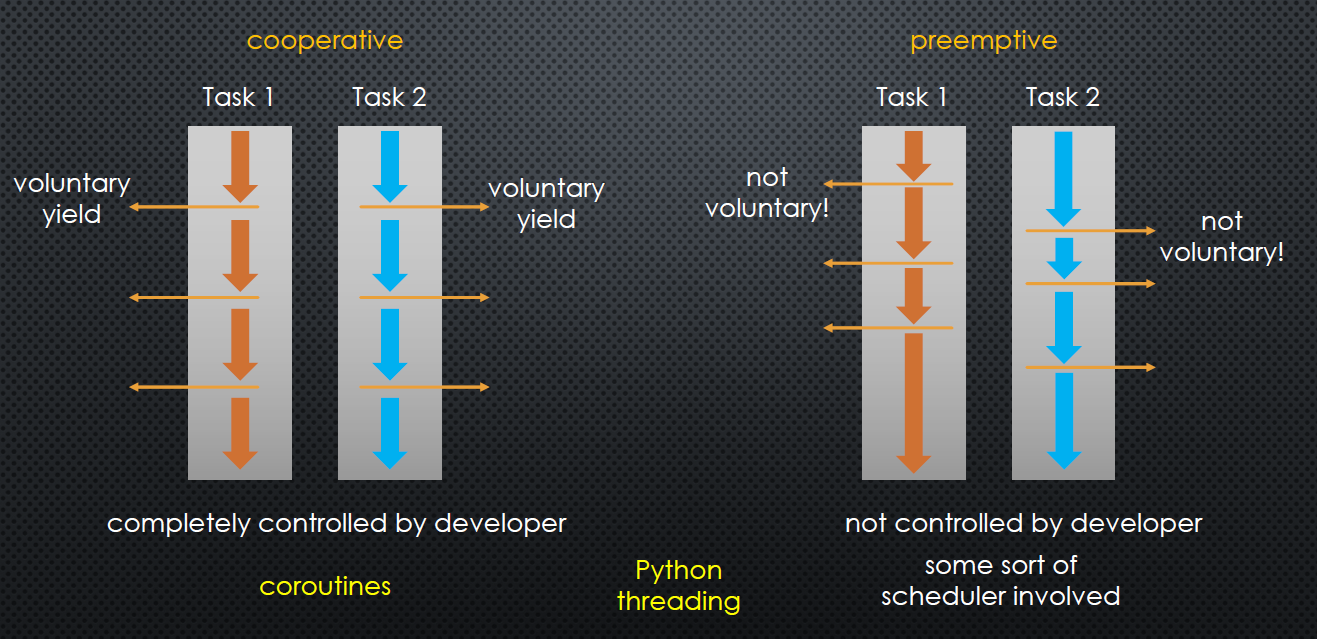-
Cooperative vs Preemptive MultitaskingModeling/TheoremParadigm 2019. 11. 10. 14:08
1. Overview
Cooperative multitasking, also known as non-preemptive multitasking, is a style of computer multitasking in which the operating system never initiates a context switch from a running process to another process. Instead, processes voluntarily yield control periodically or when idle or logically blocked in order to enable multiple applications to be run concurrently. This type of multitasking is called "cooperative" because all programs must cooperate for the entire scheduling scheme to work. In this scheme, the process scheduler of an operating system is known as a cooperative scheduler, having its role reduced down to starting the processes and letting them return control back to it voluntarily.
On the other hand, preemption is the act of temporarily interrupting a task being carried out by a computer system, without requiring its cooperation, and with the intention of resuming the task at a later time. Such changes of the executed task are known as context switches. It is normally carried out by a privileged task or part of the system known as a preemptive scheduler, which has the power to preempt, or interrupt, and later resume, other tasks in the system.
2. Description
2.1 Cooperative vs Preemptive

3. References
https://en.wikipedia.org/wiki/Cooperative_multitasking
https://en.wikipedia.org/wiki/Preemption_(computing)#PREEMPTIVE
'Modeling > TheoremParadigm' 카테고리의 다른 글
Locking Strategies and Deadlocks (0) 2020.02.27 Database Scaling (0) 2020.02.23 Eventual consistency and strict consistency (0) 2019.09.28 Difference between Concurrency and Parallelism (0) 2019.08.18 Polymorphism, Upcasting, And Downcasting (0) 2019.08.18